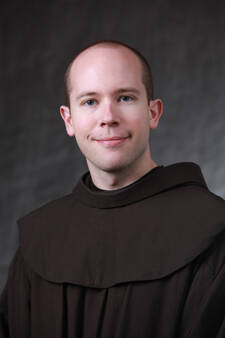Since the sentencing of Dzhokhar Tsarnaev to death at the end of the federal trial against him for his role in the Boston Marathon bombing of 2013, I have been thinking a lot about the Catechism of the Catholic Church. I think it needs to be updated.
After expressing on social media my shock and disappointment at the jury’s decision—a response shared by most residents of Boston, according to a Boston Globe poll in April 2015, which showed that 66 percent of residents favored a life sentence—I was appalled at the negative reaction I received on account of my solidarity with Pope Francis, the U.S. bishops and even many of the victims of the bombing who were against the death penalty.
Amid the predictable nonsensical or tasteless remarks common in social media were some more reasoned but nonetheless troubling comments defending the jury’s decision and the government’s “right” to kill a convicted terrorist. Several in favor of the death penalty pointed to the catechism to justify their opinion. The least nuanced views present the absence of an absolute prohibition of the death penalty as somehow guaranteeing the right to pursue capital punishment. More thoughtful proponents argue that it is perfectly legitimate to support capital punishment, at least in the case of Tsarnaev.
But neither argument takes into consideration the careful way in which the catechism, citing St. John Paul II, outlines the nearly inconceivable case in which the death penalty might be permissible. The catechism, which is primarily a summary instruction manual of church teaching for catechists, states that “the traditional teaching of the church does not exclude recourse to the death penalty, if this is the only possible way of effectively defending human lives against the unjust aggressor” (No. 2267). The text continues, “Today, in fact, as a consequence of the possibilities which the state has for effectively preventing crime, by rendering one who has committed an offense incapable of doing harm—without definitely taking away from him the possibility of redeeming himself—the cases in which the execution of the offender is an absolute necessity ‘are very rare, if not practically nonexistent.’”
The truth is that in many places around the world, including the United States, there are effective means to protect citizens from “unjust aggressors” like Tsarnaev. Secured in a supermax federal prison, an inmate sentenced to life without parole poses no actual threat; therefore the death penalty is, according to church teaching, completely off the table. Yet those seeking vengeance demand retribution instead of restorative justice and seem indefatigable in their clamoring for state-sanctioned killing, claiming justification from the catechism because it leaves open the smallest possibility for a justifiable circumstance.
My proposal is that church leaders give these people exactly what they want: a black-and-white answer to whether or not the death penalty is acceptable. The catechism should be updated to clearly state, in light of the criteria already established, that capital punishment today is never justifiable. This would not only bring the catechism more in line with the teaching of recent popes, including Pope Francis, who earlier this year said, “the death penalty is an affront to the sanctity of life and to the dignity of the human person; it contradicts God’s plan for humankind and society and God’s merciful justice,” but it would also bring the catechism in line with itself.
The opening of the section discussing the death penalty reads: “Human life is sacred because from its beginning it involves the creative action of God and it remains forever in a special relationship with the Creator, who is its sole end” (No. 2258). In the spirit of the “seamless garment” approach to Christian ethics popularized by the late Cardinal Joseph Bernadin, we must affirm that either all life is sacred or no life is sacred. For this reason, I propose also that the catechism do away with the qualifier “innocent” when referring to human beings. While individuals may be guilty or innocent of a crime, all human life is sacred without qualification; there is neither innocent nor guilty life.
Those who commit heinous crimes deserve a just punishment, but the death penalty is anything but just. Given our circumstances, the catechism should be updated to reflect the Catholic tradition’s unequivocal defense of human life. Until then, we are still far from being pro-life.








